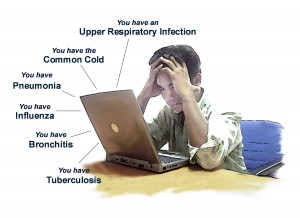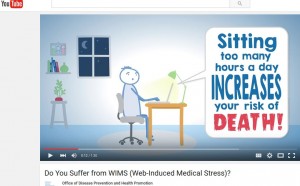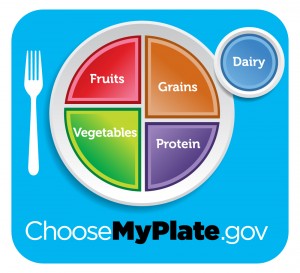How many times have you heard of someone “searching” for their current symptoms and then they decide that yes, they have a certain ailment? With smart phones and the internet readily available, we frequently “search” for a health topic or information. According to a 2012 survey by Pew Research, 72% of internet users say they looked online for health information within the past year.
Let’s explore a scenario. You have a symptom and you don’t have a doctor appointment scheduled. You decide to search for information about your symptom to see what it might be. You remember a Facebook post where someone shared a similar symptom or a cure for an ailment. You find that post – maybe you took a screen shot of the post so you could easily find it again. It is on the internet, so it is true, right? No is the answer to that question. Just because it is on the internet doesn’t mean that the information is accurate. Perhaps you find information that makes you think you have a serious ailment. Now you are anxious and stressed and you are experiencing a common occurrence, now known as Web-Induced Medical Stress.
 What do you do to alleviate this stress? First of all, make an appointment with your health care provider. Don’t delay or wait. Don’t “guess” about your health; see your physician and get the recommended tests to determine your health status.
What do you do to alleviate this stress? First of all, make an appointment with your health care provider. Don’t delay or wait. Don’t “guess” about your health; see your physician and get the recommended tests to determine your health status.
In general, if you are looking for information on the web, how do you know if this is a credible source? Just because you found a website or information on the internet, it doesn’t mean that you can trust the information. Check out this YouTube video – just click on the picture to watch it.
Here are a few questions that you should explore before deciding if a site has accurate and true information.
• Are they selling a product?
• Do they use scare tactics to make their point?
• Do they promise a “cure” for your ailment?
• How old is the information? When was the information published?
• Why is this information available? Are they trying to persuade or sell you something?
• Did they provide sources for their research?
• Who sponsors or hosts the website?
• Is my privacy being protected?
• Who can I contact for more information?
If you get a “red flag” when asking these questions, seek information elsewhere. For free, reliable prevention and wellness guidance visit healthfinder.gov. If you are looking for nutrition information, including the New Dietary Guidelines, visit USDA’s Choose My Plate site.
Tip: Remember that sites that have .gov are published by the United States government and .edu are published by educational institutions.
Don’t be tricked into thinking you have a serious ailment just because you read about it on the web. Look for researched based information and contact your physician – they will help you navigate through this health crisis. Don’t be a victim of WIMS.


